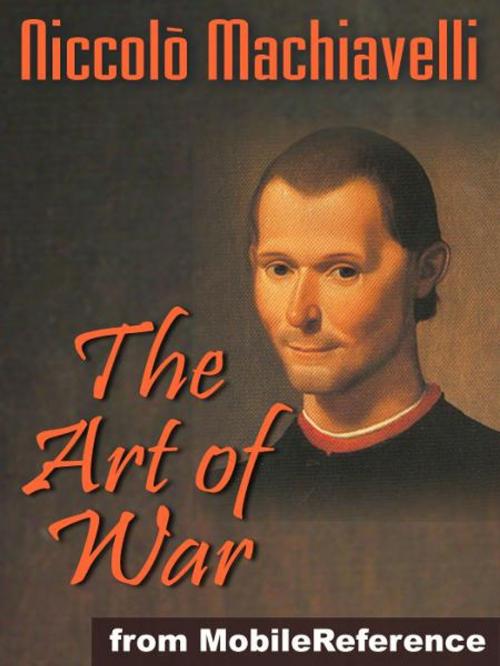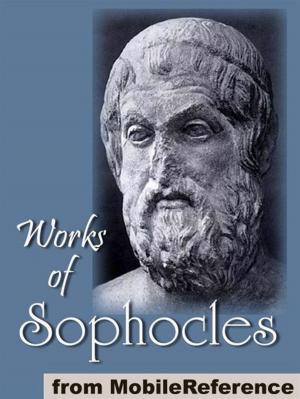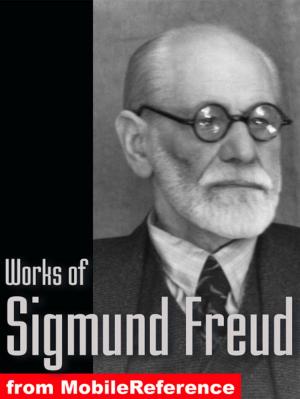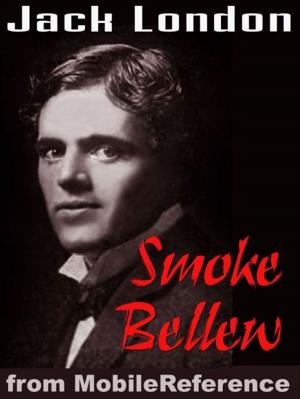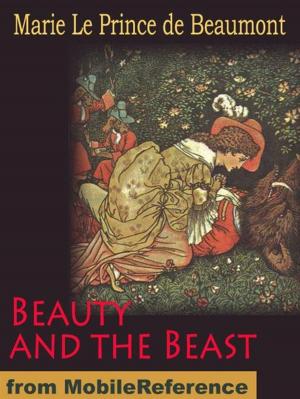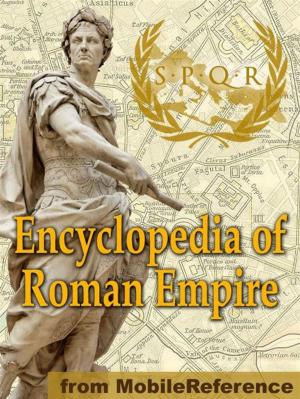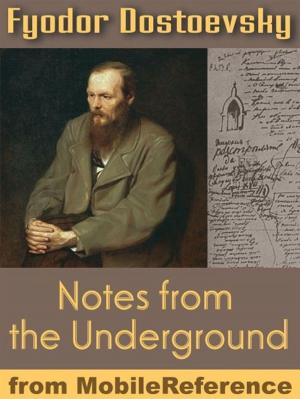The Art Of War (Mobi Classics)
Nonfiction, History, Military, Social & Cultural Studies, Political Science| Author: | Niccolo Machiavelli, Henry Neville (Translator) | ISBN: | 9781605012599 |
| Publisher: | MobileReference | Publication: | January 1, 2010 |
| Imprint: | MobileReference | Language: | English |
| Author: | Niccolo Machiavelli, Henry Neville (Translator) |
| ISBN: | 9781605012599 |
| Publisher: | MobileReference |
| Publication: | January 1, 2010 |
| Imprint: | MobileReference |
| Language: | English |
The Art of War was written between 1519 and 1520 and published the following year, it was the only historical or political work printed during Machiavelli's lifetime. Voltaire said, "Machiavelli taught Europe the art of war; it had long been practiced, without being known." Excerpted from Wikipedia, the free encyclopedia "As I believe that it is possible for one to praise, without concern, any man after he is dead since every reason and supervision for adulation is lacking, I am not apprehensive in praising our own Cosimo Ruccelai, whose name is never remembered by me without tears, as I have recognized in him those parts which can be desired in a good friend among friends and in a citizen of his country. For I do not know what pertained to him more than to spend himself willingly, not excepting that courage of his, for his friends, and I do not know of any enterprise that dismayed him when he knew it was for the good of his country. And I confess freely not to have met among so many men whom I have known and worked with, a man in whom there was a mind more fired with great and magnificent things. Nor does one grieve with the friends of another of his death, except for his having been born to die young unhonored within his own home, without having been able to benefit anyone with that mind of his, for one would know that no one could speak of him, except (to say) that a good friend had died. It does not remain for us, however, or for anyone else who, like us, knew him, to be able because of this to keep the faith (since deeds do not seem to) to his laudable qualities." Excerpted from "The Art of War
The Art of War was written between 1519 and 1520 and published the following year, it was the only historical or political work printed during Machiavelli's lifetime. Voltaire said, "Machiavelli taught Europe the art of war; it had long been practiced, without being known." Excerpted from Wikipedia, the free encyclopedia "As I believe that it is possible for one to praise, without concern, any man after he is dead since every reason and supervision for adulation is lacking, I am not apprehensive in praising our own Cosimo Ruccelai, whose name is never remembered by me without tears, as I have recognized in him those parts which can be desired in a good friend among friends and in a citizen of his country. For I do not know what pertained to him more than to spend himself willingly, not excepting that courage of his, for his friends, and I do not know of any enterprise that dismayed him when he knew it was for the good of his country. And I confess freely not to have met among so many men whom I have known and worked with, a man in whom there was a mind more fired with great and magnificent things. Nor does one grieve with the friends of another of his death, except for his having been born to die young unhonored within his own home, without having been able to benefit anyone with that mind of his, for one would know that no one could speak of him, except (to say) that a good friend had died. It does not remain for us, however, or for anyone else who, like us, knew him, to be able because of this to keep the faith (since deeds do not seem to) to his laudable qualities." Excerpted from "The Art of War
